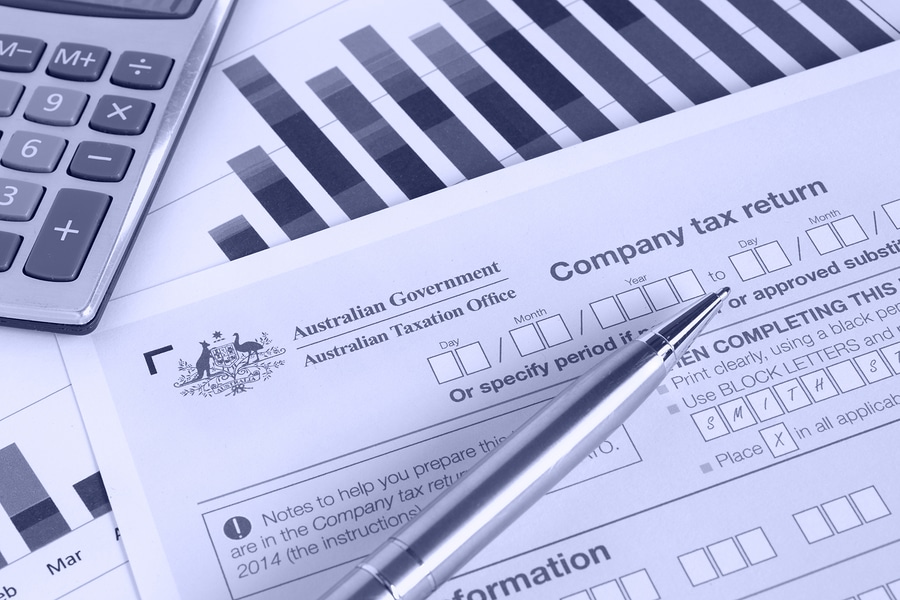
Ask our small business accountants: 4 key taxes you must register for
Starting up your own business is a big decision, and one that comes with considerable risk.
You’ll need to:
- Arrange financing
- Find a commercial property
- Get your ABN and employ staff
- Come up with systems and procedures
- Buy equipment and supplies
- Importantly, figure out what tax obligations you’ll need to meet
We know, you don’t really like thinking about tax – nobody does, really (with the exception of our business accountants in Melbourne, perhaps!)
However, that doesn’t change how important it is that your business is properly set up for tax.
Unlike your personal tax return, even small businesses need to pay up for a range of different taxes.
But first, you need to ask yourself…
Many of these taxes are mandatory – for others however, the amount you’ll have to pay (as well as whether or not you need to pay them at all) can depend on a range of factors including:
- Business size
- Your industry
- What expenses you generate
While you may know the answers to these questions, what you may not know is how they impact your tax situation. And that’s what our small business accountants in Melbourne are here to help with.
In addition to helping sort out the finances you need to get started and planning out a path towards profitability, they can also ensure you meet your tax obligations by getting you registered for all the taxes your business.
What sort of taxes are we talking about?
1) GST
As we all know, the vast majority of goods and services in Australia come with GST attached.
Implemented in the year 2000, this 10% tax replaced a variety of other state sales taxes, ensuring consistency across the nation.
In all likelihood, your goods and services will also have GST attached to them.
What you may not know is that not all businesses need to register for GST!
While you may collect GST and forward it to the ATO, you only need to register for GST if your business:
- Turns over more than $75,000 in revenue each year
- Expects to reach the $75,000 threshold within its first year
- Provides taxi services, including ride-share
- Claims fuel tax credits
Registering for GST doesn’t really affect you collecting GST – however, it does impact your ability to claim a GST refund!
Businesses that turn in more than a certain amount of GST, are entitled to a GST refund in the form of credits for any GST that they pay. If the amount of GST you paid exceeds how much you collected, you could even be left with a tidy little profit.
Of course, it isn’t just businesses that turnover more than $75,000 that can register – even if you don’t reach that threshold, there are some instances where registering anyway will benefit you, as this case study proves.
Unsure if you’re one of them? A business accountant in Melbourne can help you!
2) PAYG withholding
If you plan on starting out as a sole trader, you won’t have to register for PAYG withholding. You’re safe to scroll on to the next section.
Employers are required to withhold a certain amount from payments to employees, directors and some contractors.
This withheld money is sent to the ATO, and functions as your employees’ income tax payments – essentially, you’re collecting on behalf of the ATO.
Of course, it isn’t just employers, either – if you do business with organisations that haven’t given you their ABN, you’ll also need to pay PAYG in lieu of other taxes.
The first step towards meeting your PAYG withholding obligations is to register for PAYG withholding in the first place.
Once you’re registered, you’ll need to lodge activity statements and pay the withheld amounts to the ATO, as well as provide payment summaries to all parties involved.

3) Payroll tax
PAYG withholding isn’t the only tax you’ll need to pay if your small business employs people – you’ll also need to pay payroll tax as well.
Unlike other taxes on this list, payroll tax is a state tax – instead of going towards the ATO, it’s paid to the SRO, with each state’s SRO setting different thresholds and amounts.
In Victoria, that means if your payroll is equal to or exceeds $650,000 annually, or $54,166 monthly, which is then taxed at a 4.85% rate (2.425% for regional businesses).
4) Fringe benefits tax (FBT)
One of the benefits of working for certain businesses? The ability to enjoy a range of extra benefits in addition to salary.
You may have enjoyed fringe benefits at one of your previous roles, including:
- Usage of a company vehicle
- Gym memberships
- Free tickets and vouchers
- Reimbursements for certain expenses
What you may not have realised as an employee is that these benefits are taxed, and that the business needs to pay up.
If you’re planning on offering your staff fringe benefits as part of their employment contract (or just as a nice extra), you may need to register for FBT.
When the FBT year ends (1st April to 31st March), you’ll need to calculate the cumulative value of benefits provided, as well as the taxable amount using one of two methods:
Once you’ve decided what method you need to use, simply run the cumulative taxable value of your benefits and multiply them by the current FBT rate to get your FBT liability.
Click here to learn more about the details of FBT.
Our small business accountants in Melbourne have been helping small businesses like yours since 1966
Did you know? 60% of small businesses don’t make it past their first three years in operation.
While there are many reasons for this, one of the big ones is bad finances.
If you go into business without a path towards profitability or lose control over your expenses and tax situation, you’re going to find yourself in a hole that’s difficult to climb out of, no matter how good your core business is.
Luckily, as a small business owner, you can avoid this with the right advice.
Whether you’ve only just started up, have recently expanded or want to take your business to the next level, our tax accountants in Melbourne can help:
- Small business tax accounting
- BAS and IAS statements
- Business tax returns
- Lodge your tax return
- Bookkeeping, reporting, balance sheets and profit-loss statements
Our focus is on getting you where you want to be. We don’t just report – our small business accountants help you get there, with qualified advice and action plans.
Get your business on track for success – get in touch with our tax accountants in Melbourne today on (03) 9589 5488, or click here to request an appointment online.






















